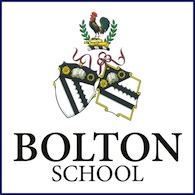 As we near the end of term, it is useful to reflect on the success of “The Great Reset” of Autumn 2023. In common with many schools, we have been re-establishing our own normal, not a new normal, after three academic years that had been interrupted and impacted by Covid.
As we near the end of term, it is useful to reflect on the success of “The Great Reset” of Autumn 2023. In common with many schools, we have been re-establishing our own normal, not a new normal, after three academic years that had been interrupted and impacted by Covid.
It was never likely schools could just take Covid in their stride: it was a serious world event and the aftermath needed just as much careful planning as our response to the events in the moment. For us, this has been an important and successful term, with a collective resolve and clear focus on what school should be like. In politics, the ‘back to basics’ message has a doubtful history, but I would contend at school it has been a terrific success.
We knew that since 2019 there has been substantial change in society and within school. From March 2020 to essentially March 2022 the impact of Covid had a very profound impact on routines and the development of children. It also had an impact on adults, their views and priorities in life, and how they approached their working life, personal time and parenting. We began by identifying which year groups had missed which stage of their development and anticipating the consequences. In nursery and infant school, this was all about basic life skills and, as we moved further up the school, it was usually about key phases of socialisation and relationships with others. It was never about knowing content and learning – we had a ‘successful’ Covid on line – the reset was all about people and behaviours.
We are also presented with an external political and social climate where societal norms around children and families are shifting rapidly. Mental health, physical health and aspirations are all less secure. The continued impact and development of social media and its impact on the young is significant. The parent as friend of their child, rather than the parent of their child, may be a long-term societal shift, but one that requires clear discussions between school and home so young people grow up in a framework of expectations.
In this context, the Foundation at Bolton School agreed a development plan that is deliberately and consciously simple and focused on our core purpose in school. It was a time to keep some parts of our lives in school steady and clearly focused, whilst others may be challenging. Following the 2019-2022 challenges it was time to consolidate, refocus and re-establish strong habits and routines in the new context we find ourselves.
We knew we could not return to a ‘past’ but we could establish what we want the future to look like and did not have to be blown by the gusts of society at large. We knew this period of consolidation need not be thought to be without innovation and interest. Within the simple core purposes, many innovations have taken place, but closely aligned to achieving our central aims.
And it has worked. The schools in our Foundation are calmer, expectations are clearer, cooperation with home is more fluent, the children growing up at school know what is expected of them and why – and all this in an atmosphere of respect and tolerance. Kindness is restored and the sense of the whole, rather than the Covid-inspired focus of the individual in their own cocoon, is ascendent.
None of this is surprising – it was all exactly like that in school in March 2020 – but I am glad we have taken emerging from the Covid years as a serious endeavour, made our plans and seen them through. Onwards to 2024.

Well done on the blog. We could not agree more with Mr Britton, he has been on top of the covid agenda at the foundation right from March 2020 and he knew exactly what to do right. Agree and delighted to see this reflection made – The parent as friend of their child, rather than the parent of their child, may be a long-term societal shift, but one that requires clear discussions between school and home so young people grow up in a framework of expectations. Children require a parent and I look forward to seeing these clear discussions in the foundation.